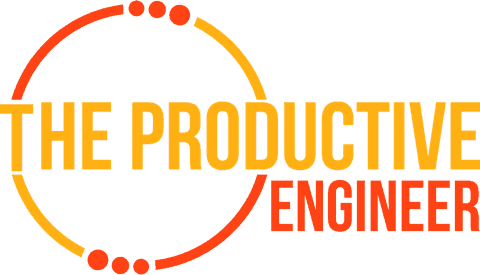Study What You Love or What Makes Money? The Answer May Surprise You
In this day in age, it can be incredibly challenging to choose a future career. So much pressure is placed on high school and college students to choose a successful path. When this pressure is combined with the cost of a college education and it’s potential long term financial impact, picking a field of study can become very difficult.

Going to college is super important for many fields, but should you choose a major that you love or a major that will make you a lot of money? Overall, this decision depends on several key factors. You must balance finding something you love (or at least are interested in) with the cost to attain the necessary skills and the average earnings in that field. If you can find a field of study that doesn’t cost an arm and leg and pays a good livable wage, then you are doing better than most.
Let’s dive into some useful information to consider when trying to decide which path to take: Passion or money?
Before we get started, if you are looking to improve your writing, you should really check out Grammarly. Grammarly is a godsend for those who have to write term papers, dissertations, or anything else you write that needs to be grammatically correct. Grammarly doesn’t just check grammar either. It helps you to write clearly and effectively by checking for overused words and unclear phrases. Best of all, Grammarly has a great free tier to get started with. For more information on Grammarly, click the link below:
Grammarly – Great Writing, Simplified
If you are looking for the best study tools out there, you should read our article on the best study tools to enhance your studying at the link below:
The Ultimate Study Tools You Must Use to Succeed!
The Highest Paid Majors
According to Monster.com, the highest-paid majors in 2019 are (Source):
| Field of Study (Major) | Average Starting Salary |
| Engineering | $69,188 |
| Computer Science | $67,539 |
| Math and Sciences | $62,177 |
| Business | $57,657 |
| Social Sciences | $57,310 |
| Humanities | $56,651 |
| Agriculture and Natural Resources | $55,750 |
| Communications | $52,056 |
If one of your passions on this list, then this might be an area worth exploring. Always been a math wiz in school? Perhaps you harness that skill into a career.
For a lot of people, though, these majors may not be appealing. Just because you are good at something, doesn’t mean you want to do it every day for the rest of your working life. If you hate what you do, no amount of money makes it worth doing. Spending your working life doing something you hate just because you are good at it and it pays well is a non-starter.

Life is about balance and you should look for things you are interested in and make sure you understand the following:
- What careers exist for that particular interest
- What degree do you need and what courses comprise that degree program
- How long will it take you to get the degree(s) and certifications necessary to start in your field
- What is the average starting salary in your potential field and what are the average salaries at 5, 10, 20 and 30 years experience
You may be asking about the last bullet why do I need to know this information? Because, as mentioned earlier, a college education is a major expense. Enclosed below is a table based on data from Credit.com on the current student loan impact on the US in 2019 (Source):
Student Loan Debt Metrics for the US in 2019
| Average student loan debt total per person | $31,172 |
| Average monthly student loan payment for graduates | $393 |
| Total student loan debt in the US | 1.52 Trillion Dollars |
| Time to pay off student loan debt | 10 – 30 years |
The data in the table above is staggering and shows no signs of lessening. Does this mean that you should only consider high paying majors? No, it doesn’t. As stated earlier, doing something you hate is a non-starter and will lead to misery. What is does mean, however, is making an informed decision on what to do understanding the full scope of the costs and benefits of the decision both now and in the future.

It is easy to be dreamy-eyed and to pick something you are interested in without considering the long-term financial impact of your decision. That is one of the factors that has led to the student loan crisis in the US. It is important to make an informed decision understanding the impact of both college and major selection as well as the average pay for that major.
What if I’m not good at math or science?
Just because math and science degrees tend to pay more does not mean that you need to choose one of them in order to be successful.
The best advice I can give when trying to decide your major is to choose your biggest passion that makes financial sense. This is what I did.

I chose my love and passion for technology and decided to study software engineering. While I didn’t have the benefit of the average salary data at the time, I knew it was a growing field that would likely pay well.
I think that balance and informed decision-making are important mantras to live by when deciding on your career path. Yes, money is essential, but your happiness is even more critical. Balance again is the key.
I am very fortunate to make a good living doing what I love to do. I am truly blessed. To be clear, I am not bragging by any stretch as I fully realize how fortunate I am to be in this position. It is very easy to either go purely interest-based major selection regardless of the financial impact or the other way of going purely the most potentially profitable major even if you don’t care for it. Both selections have major downsides. Major selection is a decision that needs to be weighed across a variety of criteria to ensure that you are making the best, most informed decision for yourself. After all, you are the one that has to live that decision every day (sorry, don’t mean to scare you).
Money Can’t Buy You Happiness.
Getting your degree is just the first step. Getting a job after graduating is an even more significant hurdle to jump.

We understand that we’ve gotta do what we gotta do in order to get by. The thing is, passion drives success. If you decide to become a doctor but have no desire to actually practice medicine, then you are basically spinning your wheels spending a bunch of your life doing something you have zero interest in purely for money (plus you likely have a bunch of student loan debt from medical school).
You had the initiative to attend college and obtain a degree, which means you are a driven individual. That drive, combined with passion, can be unstoppable in the workforce.
You can become a business executive and make millions of dollars yet still be the unhappiest man or woman in the world. As much as we believe the money would solve some of our problems (and they probably would), it can’t answer them all.

You may want to choose a more practical job because it is precisely that: practical. But, this can hurt your long-term chances of having a successful career because you may end up unsatisfied with your job down the road and quit the field altogether.
Your passions and talents make you happy. Financial stability makes you feel secure and safe. Your interests don’t need to buy you happiness, but if you pursue them as a career, then they do need to enable you to be financially stable.
Dreading going to work every day is just going to make you feel worse. If you have a passion for animals and become a veterinarian who gets to work with animals all day, how could you ever be unhappy with your career choice as long as you can live a solid life financially?
Inspiration and Security
When you’re in the classroom, studying your major, feeling like an absolute nerd is the best feeling there is. Actually enjoying what you’re learning about is fantastic as, many times, it doesn’t even feel like work.

You want that feeling to start in college and never stop throughout your career. If you aren’t interested in your major, you’re doing something wrong.
Your goal should be to be inspired and financially secure. One without the other simply doesn’t work and will cause problems for you down the road.
When I was in college, I could tell I was into technology more than some of the other students in my classes. Looking back, I feel bad for those students who spent time and energy pursuing a degree in something they didn’t love. Even if it made financial sense to do so, doing something you don’t enjoy is like having golden handcuffs on your life.
Opportunity
By going to college, you are being given a privilege that not everyone is privy to. Don’t let that opportunity go to waste. You owe it to yourself and those who don’t get a chance at college to choose to study a major that you both love and will allow you to live in a financially stable manner.
Studying a subject, you can open a multitude of different doors. Doing something you love means you are always willing to learn more about it, which leaves room for evolving opportunities.

Employers want passionate employees. You should want to be passionate about what you do. You also should want to live without the feeling of not having enough to live securely. This is not the same as being rich financially, to be clear. If you can get rich doing what you love, that is nirvana. But what I mean to say is that doing something you love that allows you to live in a financially secure way without massive debt or in poverty is better than:
- Doing something you also love but leaves you in a negative financial position long-term (either due to lack of adequate salary or massive student loan debate relative to salary)
- Doing something you don’t love (or even like) that makes you rich financially
Finding something you love (or like) that you also can live comfortably doing is tough. It is definitely more art than science. But it is definitely doable if you do the research on both an interest and a financial level.
Staying Motivated
In college, it can be really easy to want just to give up. I don’t think one person who has attended college never considered quitting. It’s a lot of work, but it’s for a reason.
You need something to keep you motivated. That can be either passion or money, or both. No matter what major you choose, you have to find the motivation behind it.

Whether it’s a guest speaker, a certain lecture, internships, or a field trip, inspiration and motivation should be entwined with your learning and your career path.
A great thing to do in order to stay motivated is to attend guest lectures outside of the required ones during class time. You never know who you will be able to network with or who will be able to inspire you.
Also, take an internship as early as possible and network with people at that internship as well. You never know what will be able to inspire and motivate you, and college is a great place to discover these things.
It is OK to Change Majors
Here’s an idea. At most universities, you are able to change your major as many times as you want to. I don’t recommend changing majors willy-nilly. Instead, your first semester should contain courses from a variety of disciplines. This will expose you to different options to see what ones might be for you as a major. If you are unsure before your freshman year begins, maybe go to your local community college and take an intro course or two in topics you might be interested in. This can help you get a head start in determining what your major could be. Plus community college courses are cheaper than courses at four-year colleges and universities (just make sure the course is transferable to your university prior to taking it).

If, however, you have already started down the road on one major and, for whatever reason, you decide that it is not for you, change your major. Better to find out now that 5 or 10 years down the road. Again, doing something you don’t like for the entirety of your working life is simply not worth it.
Is the Choice Really Money or Passion?
When we think of picking a major, it seems like there is a clear choice to make:
Study what I love or Study what makes money?
This idea that it is one or the other is actually kind of a myth. The idea that it is solely passion or money is built on a faulty proposition: that you can’t find something you are passionate about that is also financially viable. This simply isn’t true. For one thing, people generally can and do have multiple things that they are interested in. Just because one of them might not be financially viable doesn’t mean that another one of your interests isn’t viable as well.

There is an argument that can be made that you should always pursue the thing you are most interested in. The keyword is the phrase is always. Much like most questions on your exams that use the word always are false, it is also inaccurate here as well. While there are certainly cases where you have interests that are not financially viable (think starving artists as a literal example), it is likely that you also have interests that can be viable financially.
What makes you feel fulfilled?
Most of us need to feel a sense of accomplishment and appreciation for our work. We all need fulfillment.
You need to ensure that over time and, in the future, you won’t have a ton of regrets when it comes to your career choice.
As you pursue your degree, continue asking yourself if you feel fulfilled. Fulfillment is key.
The Main Reasons I Believe You Should Choose a Major based on Both Your Passions and Financial Viability
In my personal opinion, I recommend choosing a career based on both your passion(s) and financial viability. Money is not everything, but at the same time, you need a base level of it to survive and live a non-impoverished life.
Here are my main reasonings:
Happiness

Doing something you love every day is going to make you happier in the end. That’s obvious. You will never feel like you are working if you are passionate about what you’re doing and about who you are doing it for.
Better Inter-Personal Relationships at Work
You will get along with your coworkers better if you are all truly interested in the same thing(s). It is easier to collaborate and work together when you understand each other and are all on the same page. If everyone is passionate except you, you are going to stick out like a sore thumb.
Less Misery
Remember that episode of Spongebob Squarepants where Squidward does the same exact thing every day when he moves into a complex? There’s that sequence where they show him doing the exact same tasks every day and getting unhappier as each day goes by. Don’t let your job make you become Squidward. Conversely, being in debt or barely squeaking by financially definitely will make you miserable. Feeling like you are in a hole you can never get out of can have a significant negative impact on you over time.
Fulfillment

If you achieve something in the subject or field that you truly are passionate about, it will mean so much more to you. Getting an award or praise for something you could care less about is going to give you little to no fulfillment.
Potential
You are passionate about certain things and talented at certain things for a reason. Don’t let those reasons go to waste. You have the potential to change that field for the better with your passion.
Feeling Secure and Safe
Many people tend to think in absolutes. Everything is either/or and that your dream should always be pursued at the cost of financial stability. My response to this is that people tend to have multiple dreams and aspirations. Humans are built to constantly be striving for more, to want more. This ambition is what drives us forward. However, that ambition does not have to come at the expense of basic security and safety. In most cases, you can have both your dream and security. Life is rarely either/or. There are always more options than immediately apparent ones. Do your research and stay open-minded to other options that you come across.

Simply put, you won’t be happy long term if you are constantly worried about where the rent money is going to come from every month or what would happen if you incur major medical expenses. You can have a fulfilling career you love that also nourishes the spirit that also supports you financially to a reasonable extent. The key is doing the work to find it. Revelations rarely just appear in front of you. You need to do the research and expose yourself to a variety of different areas of interest to find what works for you both in terms of passion and financial suitability.
Want More Tips and Tricks? Subscribe to our Newsletter!
If you haven’t already subscribed, please subscribe to The Productive Engineer newsletter. It is filled with tips and tricks on how to get the most out of the productivity apps you use every day. We hate spam as much as you do and promise only to send you stuff we think will help you get things done.
Check Out Our YouTube Channel!
We have a YouTube channel now and we are working hard to fill it with tips, tricks, how-tos, and tutorials. Click the link below to check it out!
Check out our Resources page
Check out our resources page for the products and services we use every day to get things done or make our lives a little easier at the link below:







